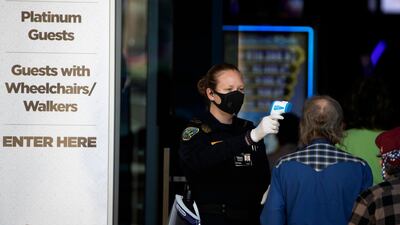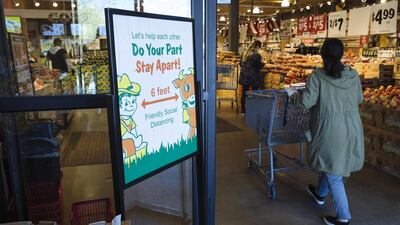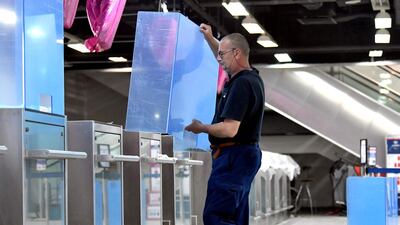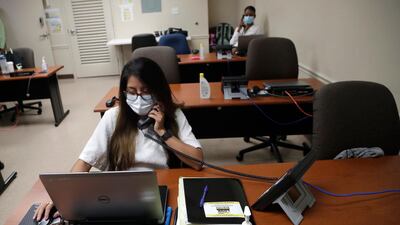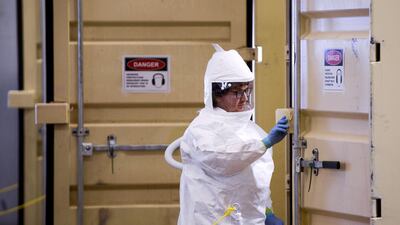As many countries around the world take tentative steps to reduce restrictions put in place to stem the Covid-19 pandemic, there is understandably some hesitation that this could lead to a second wave of infections. The prospect of losing control of the outbreak is a legitimate concern. Yet populations cannot continue to tolerate lockdowns with little respite.
We are as a result sitting somewhere between the devil and the deep blue sea, the former being the uncertainty of what an extension of the strictest measures will mean for our mental well-being and livelihoods, while the latter is the equal uncertainty of what removing them will mean in terms of the risks to our physical health from the virus. No government wants to create a scenario where healthcare systems are potentially overwhelmed as cases spike again.
The first phase of the pandemic is nonetheless drawing to a close. My thoughts these past days keep returning to the middle of January when we were in its embryonic stage. During the World Economic Forum Annual Meeting in Davos, Switzerland, concerns about an epidemic unfolding in the Chinese city of Wuhan were being discussed.

At a briefing on January 23, experts explained the threat we were facing and if the novel coronavirus, as it was referred to, would become more than just a problem for China. At that point, there were about 800 known infections in China and some two dozen fatalities. It really was the beginning.
Still, the perspective offered from 17 weeks ago is important for us today precisely because there was still a sense of detachment. The understandable noise and hysteria that we have been living with for too many months had not yet had a chance to build up.
In Davos, Jeremy Farrar of the health charity Wellcome Trust, and a senior UK government health adviser, discussed actions that should be taken quickly such as travel restrictions while also cautioning that such policies only “buy you time” and will not stop the epidemic “moving”.
Dr Farrar said that there was compelling evidence that this outbreak should be taken very seriously indeed and it is what he had been “frightened of for the last decade”.
“You don’t often get an animal virus coming into humans passing between humans and being spread by the respiratory route,” he said.
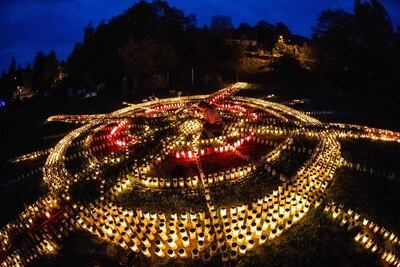
During the same briefing, Richard Hatchett, an expert on pandemic planning and response, warned that “we will have to make decisions under ambiguity and uncertainty”.
There would be a significant cost to these decisions, he said.
We are all familiar now with non-pharmaceutical interventions, such as physical distancing, isolation and curfews. Only now do we understand what the experts meant by the enormous strain they would put on us.
The potential catch-all solution of a vaccine was also part of the conversation in Davos. The steps needed to make one available had to be taken straight away, Dr Hatchett said.
The chief executive of the Coalition for Epidemic Preparedness and Innovations, or Cepi, also announced in Davos three international partnerships to develop vaccines against the coronavirus. The hope, he said, was to move them rapidly into human clinical trials by the summer.
Just this week, news broke that one of Cepi's collaborations – with US biotech company Moderna – had yielded positive results in its early-stage human trials.
Despite this hopeful development, we can never change that there has been a devastating cost to the world from the pandemic. Statistics such as more than 4.9 million infected, over 320,000 dead and tens of millions of jobs lost do not tell the whole story of human suffering. But more than 1.9 million have also recovered from the illness. Countless examples of selflessness and bravery have been seen in every country afflicted by the disease as our healthcare systems and social cohesion have been put to the sternest test. We are meeting that test.
When I think of what these experts said all those weeks ago in Davos, when it literally was a different world we lived in, I take the lesson that we have known all along that this is not a battle that mankind is going to lose as long as we take it as seriously as we can. For a time perhaps many nations did not. We are past that now.

This second phase of the pandemic – as we try to open up – may ultimately prove more frightening than the first phase. But compared to January, we do have a better grip on our limitations and capabilities. We now know we can come through this crisis and perhaps sooner than the worst-case scenarios suggest.
It takes a cold rationale to be able to confidently say that we can ease restrictions safely and without mistakes. No one can be 100 per cent certain of what the next few weeks and months will look like. We will have some setbacks. There is no doubt, however, that we have the ability right now to shape the future precisely because everything is being upended, redrawn and repurposed. That is an opportunity as much as a threat.
As Dr Farrar put it in Davos, to move forward, we must “live with that degree of uncertainty and not be intimidated by it”.
Mustafa Alrawi is an assistant editor-in-chief at The National
























